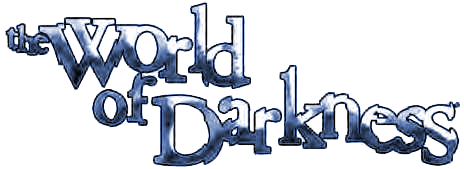
Announcements: Cutting Costs (2024) » January 2024 Copyfraud Attack » Finding Universes to Join (and making yours more visible!) » Guide To Universes On RPG » Member Shoutout Thread » Starter Locations & Prompts for Newcomers » RPG Chat — the official app » Frequently Asked Questions » Suggestions & Requests: THE MASTER THREAD »
Latest Discussions: Adapa Adapa's for adapa » To the Rich Men North of Richmond » Shake Senora » Good Morning RPG! » Ramblings of a Madman: American History Unkempt » Site Revitalization » Map Making Resources » Lost Poetry » Wishes » Ring of Invisibility » Seeking Roleplayer for Rumple/Mr. Gold from Once Upon a Time » Some political parody for these trying times » What dinosaur are you? » So, I have an Etsy » Train Poetry I » Joker » D&D Alignment Chart: How To Get A Theorem Named After You » Dungeon23 : Creative Challenge » Returning User - Is it dead? » Twelve Days of Christmas »
Players Wanted: Long-term fantasy roleplay partners wanted » Serious Anime Crossover Roleplay (semi-literate) » Looking for a long term partner! » JoJo or Mha roleplay » Seeking long-term rp partners for MxM » [MxF] Ruining Beauty / Beauty x Bastard » Minecraft Rp Help Wanted » CALL FOR WITNESSES: The Public v Zosimos » Social Immortal: A Vampire Only Soiree [The Multiverse] » XENOMORPH EDM TOUR Feat. Synthe Gridd: Get Your Tickets! » Aishna: Tower of Desire » Looking for fellow RPGers/Characters » looking for a RP partner (ABO/BL) » Looking for a long term roleplay partner » Explore the World of Boruto with Our Roleplaying Group on FB » More Jedi, Sith, and Imperials needed! » Role-player's Wanted » OSR Armchair Warrior looking for Kin » Friday the 13th Fun, Anyone? » Writers Wanted! »
Power Guide
a part of “World of Darkness”, a fictional universe by Crooked Thoughts.
The world isn't what you think. Beneath skyscrapers' leering gargoyles, factories belching smoke, and streets packed with the human throng, lurk things we aren't meant to see. Your darkest fears aren't make-believe... they're real.

Tip jar: the author of this post has received 0.00 INK in return for their work.
-

Crooked Thoughts - Member for 15 years
-








Alchemist and Alchemy
An alchemist is one of the many remarkable individuals capable of studying and practicing alchemy. As the craft of alchemy requires a full understanding of chemistry and ancient alchemical theory, alchemists are closer to scientists than witches, but the ability to perform alchemy is also tied to an inherent talent for manipulating matter and energy. Not all people can become competent alchemists merely by studying.
Tip jar: the author of this post has received 0.00 INK in return for their work.
-

Crooked Thoughts - Member for 15 years
-








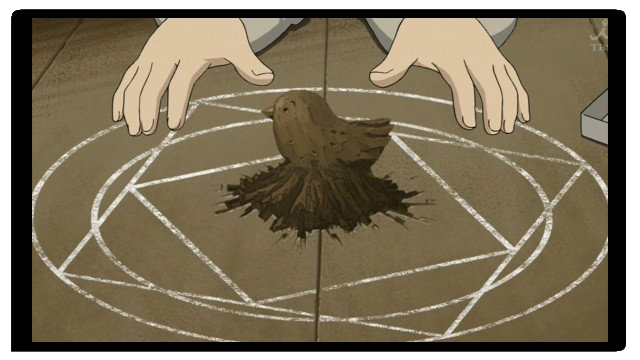
• Deconstruction: Using energy to break down the physical structure of the identified material into a more malleable state so as to be easily reshaped into a new form.
• Reconstruction: Continuing the flow of energy so as to reform the material into a new shape.
The proper application of this craft requires not only a full understanding of chemistry and ancient alchemical theory, but also a sort of natural talent towards recognizing and manipulating the physical objects with energy, which require uncommon levels of intelligence and aptitude. Those remarkable individuals capable of studying and practicing alchemy are known as "Alchemists".
There are many paths by which alchemists can transmute the various substances of the world, with some alchemists being said to transmute by way of the Four Classical Elements (Water, Earth, Fire and Air) and some by way of the Three Essential Principles (Salt, Sulfur, and Mercury), but the basic tenet at the very foundation of all alchemy is that of Equivalent Exchange.
In standard practice, Equivalent Exchange is separated into two parts:
- The Law of Conservation of Mass: States that energy and matter can neither be created from nothing nor destroyed to the point of elemental nonexistence. In other words, to create an object weighing one kilogram, at least one kilogram of material is necessary and destroying an object weighing one kilogram would reduce it to a set of parts, the sum of which would weigh one kilogram.
The Law of Natural Providence: States that an object or material made of a particular substance or element can only be transmuted into another object with the same basic makeup and properties of that initial material. In other words, an object or material made mostly of water can only be transmuted into another object with the attributes of water.
Since the alchemical forces being manipulated are not human in origin, but of the world as a whole, the consequences for attempting to bypass the Law of Equivalent Exchange in transmutation are not merely failure and cessation. When too much is attempted out of too little, what occurs is called a Rebound, in which the alchemical forces that are thrown out of balance on either side of the equation fluctuate wildly of their own accord in order to stabilize themselves - taking or giving more than was intended in often unpredictable and catastrophic ways such as accidental mutation, serious injury or death.
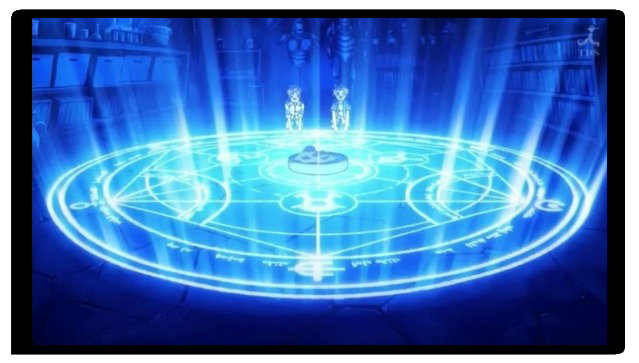
•The Inside: In the circle are specific alchemical runes. These runes vary widely based on ancient alchemical studies, texts and experimentation, but correspond to a different form of energy, allowing the energy that is focused within the circle to be released in the way most conducive to the alchemist's desired effect. In basic alchemy, these runes will often take the form of triangles (which, when positioned differently, can represent the elements of either water, earth, fire or air), but will often be composed of varying polygons built from different triangles. For example: the hexagram is a commonly used base rune in Transmutation Circles because it creates eight multi-directional triangles when inscribed and can therefore represent all four classical elements at once. Other, more esoteric runes (including astrological symbols, symbolic images and varying lines of text) are prevalent and represent a multitude of other, specific functions for the alchemical energy that is released.
Transmutation Array
A Transmutation Array is similar to a transmutation circle in that it is used to circulate the energy used in a transmutation. However, unlike a transmutation circle, the runes are not confined to the circumference of the circle and may use the circle only as a small aspect of their function. In some instances, a transmutation array may not even be a circle at all using different concepts to bring about the circulation or release of the energies involved. Transmutation arrays are often found as full body tattoos on alchemists due to the shape of the body. It is also possible that the non-cyclical nature of transmutation arrays amplifies the 'destruction' stage of alchemy. These are often utilized in Combat Alchemy.
Resurrection
Attempts to bring deceased beings back to life are the most common practice to be called Humanoid Transmutation. Using various experimental theories and methods, many alchemists have endeavored to resurrect dead loved ones, but such pursuits are always failures, forbidden by the flow of the universe and alchemy itself.
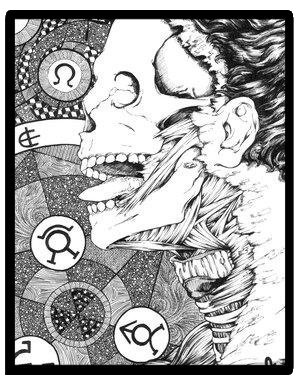
It has been determined that resurrective Humanoid Transmutation is impossible because a soul that has left the mortal coil has passed on into the afterlife and can never be called back. The attempt will cause a rebound due to both the inherent lack of any particular substance able to match a soul in value and the fact that the initiated transmutation is reaching for an unattainable goal. Of the known attempted Humanoid Transmutations, the rebound has been the "taking" of parts of the initiator's body.
Soul Binding
Another terrible form of Humanoid Transmutation is the manipulation of souls. Though appearing on no official records, there have been experiments involving the extraction of souls from bodies and the alchemical binding of said souls to inanimate objects usually by way of a rune drawn in blood on the object itself. The most common object has been metal armor, it is said that the iron in the blood bonds alchemically with the iron in the object and the blood itself remains bound to the soul of the person from which it was taken.
The Blood Runes themselves differ based on the theories and style of whatever alchemist performed the binding. However they all depict a spark or flame (presumably signifying a soul) hemmed in by other symbols in a blood-drawn Transmutation Circle that suggests a soul trapped within a container. In essence, these souls exist in the mortal plane without their bodies, are able to manipulate the objects to which they are bound and communicate verbally with beings around them but, of course, there are caveats. These souls cannot feel pain or die by conventional means since the "bodies" they now inhabit are not mortal.
Tip jar: the author of this post has received 0.00 INK in return for their work.
-

Crooked Thoughts - Member for 15 years
-








The Charmed and Magic/Witches and the Craft
Magic is a natural phenomenon like air pressure, gravity, inertia, or anything else. Everyone is born with the ability to interact, control, and shape it, but only a few people will ever achieve true greatness. Those who can do so at expert levels and are called Charmed Ones or more commonly, Witches. Witches are capable of manipulating the basic elements, such as conjuring gouts of flame and small localized ice and electrical storms. There are also spells that allow for the temporary reanimation of corpses and the draining of an opponent's life-force.
These are typically spells devoted to manipulating energy, converting one substance to another, or calling on the services of other creatures. For magic users, these spells are generally committed to memory after a session of meditation upon a spellbook containing the details of the incantation. Once prepared, the spell is cast using specific words and/or gestures, and sometimes a specific material component.
There are two main types of magic:
- Natural: Which comes from the world and universe around the caster.
Divine: Which is inspired from above or below: the realms of gods and demons.
Tip jar: the author of this post has received 0.00 INK in return for their work.
-

Crooked Thoughts - Member for 15 years
-








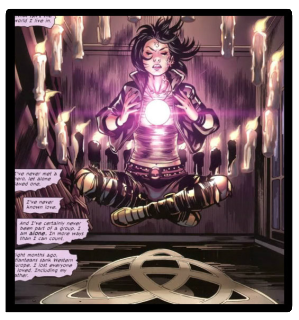
- Arcane Circles & Runes: Arcane magic is based upon the principle of manipulating magic directly rather than as many do through words. It’s built around the arcane circles that often look extremely complex and hard to make. People usually think arcane magic is among the hardest form due to its complex nature.
- Incantations: Many spells require the caster to speak certain words to cast a spell. Being prevented from speaking, by such means as a gag or magical effects that remove sounds, makes it impossible for a caster to cast such a spell. A deafened caster may also fail when casting a spell, by misspeaking, which causes the spell to be expended with no effect.
- Somactics: Many spells require the caster to make a motion to cast the spell. If the caster is unable to make the correct motion, the spell cannot be cast.
- Materials: Casting a spell often requires that the caster sacrifice some sort of material component, which is typically has a thematic connection to the spell. Often, these components are of negligible cost (egg shells, sand, a feather, etc.), but spells which allow major bending or breaking of the laws of nature, such as spells to reanimate the dead or grant wishes, require material components of a steep cost (precious or semiprecious gems, statuettes, etc.). If a caster is unable to access or use the correct material component, the spell cannot be cast. Costly components are required for most rituals.
- Foci: Foci fill a similar role to magic weapons, although some may require the user to be able to use magic while others do not. Things such as Rods, Staffs, Totems, Wands, Holy symbols, Orbs, Weapons, and even Musical Instruments cane be used as foci. Focus can be used to teach someone how to use magic, enhance, or simplify the use of magic.
- Potions: Potions are spells in liquid form, capable of causing a variety of effects, including healing, amnesia, infatuation, transformation, invisibility, and invulnerability. Activating the magic can be as simple as drinking the contents or throwing them at the target, since potions can be used offensively as well. Potion use is often seen as cheap or generic magic, since anyone can use them and make them. Because of this, potion magic is weak and the effects have a time limit.
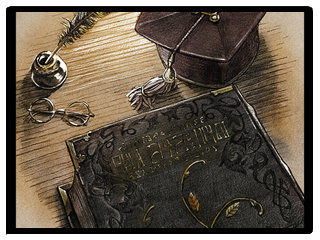
- Transmutation: These are spells that deal with manipulating the composition of objects and the environment around them. In transmutation the spell caster needs to have an understanding of what things are composed of, in order to successfully cast spells. Those who practice this are referred to as a Transmuter.
- Abjuration: These are spells that deal with protecting or neutralizing magic. Spellcasters who practice this typically have a large knowledge base about other kinds of magic and potions even though they don’t practice it themselves. Those who practice Abjuration are called an Abjurer.
- Conjuration: This school is focused on instantaneous transportation, conjuring manifestations of creatures, energy or objects and object creation. Conjuration is divided into five subschools:
- Calling: Spells which physically transports extraplanar creatures to the caster, as well as granting them the ability to return to where they were called from.
- Creation.
- Healing.
- Summoning: Teleporting objects to the caster's.
- Teleportation: Instantly transporting of their own person or others.
- Evocation: These are spells that deal with manipulating magic and the energies of the nature. Basically, the manipulation of the raw elements, excluding creation of said elements. Evocation spellcasters are referred to as an Evoker.
- Necromancy: Like the name is known for, these are spells that deal in death and life itself. Manipulating the both in order for an attempt to control it, bringing things more or less back to life or take life from things and use the life energy to bring other things to life. A necromancy spellcaster is known as a Necromancer.
- Illusion: Illusion is divided into five subschools:
- Figment: Creates artificial sensations with no physical substance.
- Glamer: Alter the target's sensory properties, and can cause invisibility.
- Pattern: Creates insubstantial images which affect the minds of the viewers; can inflict harm.
- Phantasm: Creates hallucinations which can be harmful.
- Shadow: Uses magical shadows to create things with physical substance.
- Divination: Divination is focused on acquiring information. The school is divided into two types of divining: Lesser Divination and Greater Divination, and one subschool: Scrying. Spells within the scrying create invisible magical sensors which provide the caster with information, these sensors can be detected and dispelled. Spellcasters who specialize in this school are known as a Diviner.
- Enchantment: Enchantment spells refer to those that affect the mind, rather than items. The enchantment school is divided into two subschools: Compulsion and Charm. Charm spells affect the targets' attitudes, usually making them act more favorably toward the caster. Compulsion spells can force the targets' to act in a certain way or avoid certain actions. Additionally, they can affect the targets' emotions as well as the targets' mind in other ways. Spellcasters who specialize in this school are known as an Enchanter.
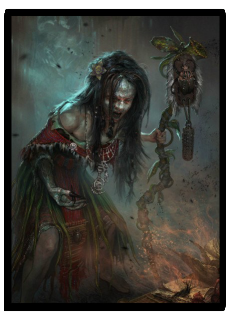
Magic corrupts the soul, if the humblest person became a practitioner of spell casting, by the time that practitioner reached the higher levels, all traces of their humble roots would be lost. Magic breeds pride and arrogance. Magic corrupts the body; it ages the caster before his/her time and hastens that the world inflicts on things fair and beautiful. It is an Addiction. When one feels the power of magic coursing through one's body as it's being cast, resisting the urge to cast it again is difficult.
The effects usually start happening after the first spell is cast. There are many things that can happen to the user in their long life of spell casting. These effects are not unavoidable, as some have the ability to tame this horse, but for those who may be losing the fight, this is their fate. One may not succumb to all these effects, whether they have control or not, but they still might be claimed by a few of these.
Tip jar: the author of this post has received 0.00 INK in return for their work.
-

Crooked Thoughts - Member for 15 years
-








Imbued, Conviction and Edges
Conviction
Your character's inner strength and drive for the hunt is measured in terms of Conviction. This trait rises and falls quickly as it's risked, spent, and regained. All of the imbued have Conviction; it's imparted to them along with Edges when they are chosen.
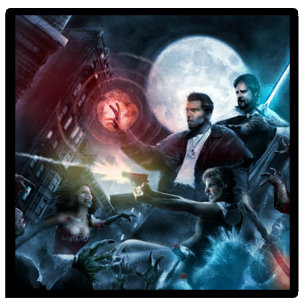
Normal people and supernatural creatures don't possess Conviction. Indeed, the Trait can be used only in relation to hunters' Edges, to "fuel" those powers with a character's reserves; to resist influence and control by creatures' powers; and to heighten hunter senses to the presence of the supernatural. Your hunter character possesses Willpower, too, but that Trait can't be applied to the successes of any feat wherein hunter Edges are concerned. Such effects are the exclusive functions of Conviction. By contrast, Willpower applies when hunters perform "mundane" actions such as jumping between buildings, lifting heavy objects, or staying awake. Conviction has no effect over those efforts that the human body can accomplish all on its own.
Your character has a starting Conviction rating based on their devotion to their creed. As this amount increases, characters gain access to higher tier edges.
The protection offered hunters by Conviction allows them to wage their war against the supernatural, to remain above monsters' control and influence. Conviction can't be spent to protect a character all the time, though; points simply run out, and the hunter is left exhausted. Hunters, like all people, also have to sleep, and they're just as vulnerable as everyone else when they do. If a hunter is ever exposed to supernatural mind, emotion, or body control while his defenses are down, he's subject to those powers as is any human (unless the Storyteller allows some kind of instinctual spending of Conviction).
Edges
Your character's Edges are the powers bestowed upon them at the moment of being imbued. Edges belong to paths according to Creed. The powers listed under the Innocence Creed form the Innocence path. The powers listed under the Judgment Creed make up the Judgment path. Your character's primary path is that of their Creed. The primary path of a Martyr Creed character is the Martyrdom path. Your character's progress along this path regulates what other powers they're allowed to have.
Edges must be acquired in increasing order on a path. You can't buy the level one Defender power and then jump to the level three; each Edge along a path is the prerequisite for the one immediately higher.
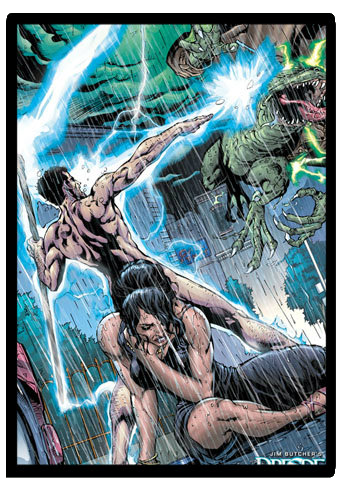
Virtues determine what Edges you can acquire. You can choose an Edge from any creed's path for which your character has an appropriate Virtue. Thus, a character with a Mercy rating can have powers from any of the Redemption, Martyrdom, or Innocence paths. A character with a rating in Zeal can have Edges from any of the Vengeance, Judgement, or Defense paths. It doesn't matter whether these other paths are your character's primary path, or if these other Virtues aren't your character's primary virtue.
The only stipulation to choosing Edges from paths other than your character's primary path is this: Edge ratings in other paths can't exceed your highest rated primary path level. Thus, a Visionary with the level three Visionary Edge can have powers belonging to other Paths. Those other Edges simply can't be rated four or higher. A Defender with the level two in their primary path can't have any other power rated three or higher.
Your character can even have Edges from other paths belonging to the same Virtue as that of their primary path. A Defender can have Avenger and Judge Edges, all of which belong to Zeal. However, those other powers still can't exceed your character's highest rated Defender Edge.
Edges are purchased with Virtue Points. An Edge costs its level in Virtue Points. Thus, a level one Edge costs one point of the appropriate Virtue. A level two Edge costs two Virtue Points. Getting both the level one and two Edges in the same path therefore costs a total of three Virtue Points. Having the level four Edge and all those beneath it in a path costs a total of 10 Virtue Points. Remember that you must possess one Edge in a path before you can purchase the next higher rated. Characters get a total of 20 points to spend.
Tip jar: the author of this post has received 0.00 INK in return for their work.
-

Crooked Thoughts - Member for 15 years
-








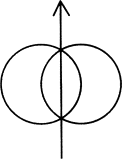
Innocents' unusual candor can sometimes produce unexpected reactions from night-creatures, but more often it simply puts them in danger. Who else could ask a monster a direct question and expect a straight answer? This straightforwardness has led other hunters to give Innocents various nicknames, some meant kindly, others less so.
- Hide: The Innocent are often perceived as innocuous, harmless, and inconsequential. Being underestimated gives them power. Supernatural creatures literally have a tendency to overlook or miss you character's presence. He's there, but not worth the time, attention, or effort, or he simply doesn't seem to exist. Only when your character specifically draws attention to himself, such as through attacking, does he "appear." Your character could even stand face to face with a creature and have it not acknowledge his presence. An Innocent often discovers her invisibility among monsters when her first instinctual response to such creatures is to stand gaping or to ask straightforward questions. Creatures either take no notice or their attention must be actively attracted. A rampaging monster that completely bypasses a blatantly obvious Innocent is also a hint that Hide is in use.
- Illuminate: This Edge makes it possible for your character and fellow hunters to identify supernatural creatures. Not only does it indicate which beings are inhuman, it suggests what kinds of creatures they are. One drawback to Illuminate is that monsters seem able to perceive its use and can even tell which human generates the effect.
- Radiate: If there were ever evidence that hunters are of divine origin, this is it -- or, at least, this Edge could be used to justify such claims. Once this power is activated, your character radiates a white light that impedes supernatural attacks. People protected by this field appear blurry and indistinct to the eyes of unnatural creatures. The light itself is distinct to hunters but otherwise has no effect on them, whether they're inside or outside the aura. Monsters that don't rely on visual senses are still confused and disoriented by the power.
- Confront: To use this Edge, your character must meet a creature's gaze directly and make no attempt to avoid the monster's attack. Even though your character is a "sitting duck," striking her becomes terribly difficult. The few creatures who've been subjected to this power and are willing to discuss it say that striking becomes emotionally impossible. The hunter seems to embody everything that is (or that ever was) pure, important and valuable to the attacker -- perhaps even dredging up emotions the creature had thought lost for centuries. Striking or acting against the hunter seems psychologically suicidal -- a crime of grotesque magnitude. Attackers who do force themselves to perform the repellent action find it excruciating.
- Blaze: Your character can make one light source agonizing and damaging to unnatural creatures of all kinds. The degree of damage inflicted depends on the intensity of the light source. A match is irritating, a powerful flashlight is dangerous, and (on a clear day) the sun is destructive. Blaze is instantaneous: Your character uses this power and the light source in question becomes amazingly powerful for a moment. While the effect doesn't last, it can traumatize every supernatural creature exposed to the rays. Strangely, Blaze doesn't work with moonlight. Some Innocent extremists with this power describe its use as "sharing the true light."

Martyrs can understand the misery of a compulsive predator, because they're the same. They know that these hideous beings, whose very appearance fills a Martyr with repulsion and disgust, might have once been fully human. Martyrs are therefore miserable with their role, but know that if they pursue it, fewer others will have to share their fate. Every Martyr longs for the day when hunters are obsolete.
- Demand: Martyrs, by definition, are willing to hurt themselves to save another's life or to hurt an enemy. This willingness to chase even Pyrrhic victory is reflected in Demand. Your character is willing to exhaust himself in a desperate bid to accomplish amazing deeds; he puts his all into an action and receives might born from purity of purpose. Martyrs' willingness to sacrifice themselves simply invigorates them with energy and power.
- Witness: Witness allows your character to recognize the nature of supernatural creatures in her presence. It also gives her a glimpse of specified creatures' relationships with mankind.
- Ravage: No one's quite sure what the hell happens when a hunter cuts loose with this Edge. It seems to produce a roiling heat-haze. This gas (for lack of a better term) pours out from your character and travels where he gestures. Physical matter seems unaffected, but supernatural creatures react violently. it seems to corrupt and decay their very bodies. Not even intangible creatures are safe. Ravage has no physical effect on human targets, but it causes deep emotional trauma: Headaches, depression, terrified fugues, and uncontrolled weeping. As for wielders of Ravage themselves, the power makes them sick. Stomach pains, coughing, blurred vision, and vomiting are all associated with the Edge. Martyrs describe the power as "Tearing something open -- like injuring the world. It hurts us, it hurts them -- but it hurts them worse."
- Donate: A hunter far along the Martyrdom path can blur the lines between herself and others. Her sense of self becomes so diffused that it's possible to led that "self" to others for their use. The most obvious loan is physical potency or speed, but less tangible capacities can be donated as well. One Martyr has likened the experience to another person walking a mile in her shoes --while she's still in them. Your character can make this "loan" to any willing person whom she can touch. The exchange is immediate, though not always complete. If physical qualities are lent, you character is weakened commensurably. Lending mental acuity is a bit more complex: The donor's intellect and attention are literally split between herself and the recipient. This "split attention" can function almost like a two-way radio, with no known limit to the distance separating the two parties. The biggest restriction is time: Your character can share of herself for a limited period.
- Payback: Your character can impose human, mortal, limitations and vulnerabilities upon inhuman opponents. He can also rob such beings of their powers. All your hunter has to do is lock his gaze with a supernatural enemy's and concentrate on the specific way he wants to cut that being down to size. The Martyr imposes a righteous moral punishment upon the creature.
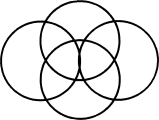
- Bluster: A shouted syllable becomes a veritable shield against harm. The word spoken doesn't matter, but it can abort any type of deliberate attack. A hunter often learns a word's power when she blurts it out instinctively, and the word amazingly averts harm. Bluster can turn aside anything from a switchblade to a chainsaw -- or even arcane weapons such as bolts of fire or lightning. The attack can be made against your character or another person. The Edge has no effect on attacks that don't do damage (such as mind control attempts) or on attacks that aren't direct (such as stabbing a voodoo doll of your character). Furthermore, it works only against actions that other individuals undertake. It can protect your hunter or another person from being run down with a car (even I the driver is careless, not actively malevolent.) it can't stop an avalanche or a natural bolt of lightning.
- Insinuate: Your character has to ask one questioin of a supernatural creature, and that creature has to understand that a question has been asked. The particular question isn't really important, and it doesn't matter if the being replies. What matters is that your character interacts with the creature as if it were a person, not a thing. This simple act, when fueled by hunter spirit, forces the creature to confront mortals in human terms. The Edge usually causes intense feelings o sorrow, loss, and isolation.
- Respire: Also called the "Kiss of Life," this Edge allows your character to heal a person by breathing into her mouth. While your character appears to be performing mouth-to-mouth resuscitation, this power accomplishes a lot more. It can heal cuts, slashes, damaged organs, and broken bones. Respire can do something altogether different to supernaturals. Instead of infusing healing energy, it steals energy. Mouth-to-mouth contact isn't required. Yet your character must be nearby to inhale the stuff from an enemy. This power is dangerous even to intangible foes.
- Becalm: A Redeemer radiates his inner calm and tolerance as if it were an energy form. The Edge has two simultaneous effects. The first is physical: Becalm makes it difficult for those around your character to act in a sudden or deliberate way. Events occur slowly. Response times are delayed. Actions seem to be performed as if subjects are groggy. The second effect is emotional: Becalm stifles anger, alleviates fear and tension, and generally makes subjects gain perspective and relax -- at least somewhat. This effect doesn't make the becalmed lose their will to fight or survive. The power doesn't change motivation, it just makes events seem less urgent. Becalm doesn't affect normal actions such as speaking or moving slowly, as long as those actions don't have explosive or violent results.
- Suspend: Many hunters believe in other worlds, including Heaven, Hell, or Purgatory -- perhaps even other dimensions or alien planes. A hunter who proceeds this far along the path of Redemption begins to understand that other realms might exist -- and suspects that supernatural creatures are tied to them and can travel to and from such places. Certainly, creatures have been known to disappear without a trace, even to hunter sight. This Edge denies a monster those escape routes and forces it to face the error of its ways in the here and now. It also protects the world from unspecified "prying eyes." Redeemers who attaint his level of dedication rarely discuss what it is they believe is "watching." Users and witnesses of this power report sensations like popping ears, nosebleeds, and headaches, but also a sense of liberation. Some fear horrendous side effects, such as keeping the souls of the recently dead from traveling to their rightful places -- trapping those souls on Earth.

While Zealots ask, "What can destroy them?" and the Merciful wonder, "How can we help?" visionaries take a step back and simply ask, "What are they?" This introspection has earned these hunters several nicknames. Those who respect Visionaries call them "pathfinders" and "wayfarers." Those who have little use for them apply names like "navel-gazers" or simply "fools."
- Foresee: While most hunters would simply be glad to have this power, Visionaries are compelled to debate its nature. One group suspects that it's a form of telepathy -- if such a thing exists -- that allows them to anticipate probabilities and the actions of others. Some think Foresee allows hunters a brief glimpse into the future -- a look that allows them to choose the best course of action. Either way, your character has a momentary flash of how his choices might affect a situation, and may choose the best option available to him.
- Pinpoint: This Edge gives your character insight into the weaknesses of a supernatural creature. Sometimes, the information comes in the form of a vision (usually of a place or object of importance). Other times it's simple intuition -- your character "just knows" that the creature can't use its powers freely under certain circumstances, for example. Pinpoint is often used after a creature has been detected (through second sight) and recognized (through Edges such as Discern, Illuminate, or Witness), as part of a plan of attack. The truly informed hunter is the most likely to survive. Thoroughly experienced hunters can also use this edge to identify some monsters through their weaknesses -- "It feeds on pain to survive. Mostly zombies do that -- mostly."
- Delve: Also known as "Past Viewing," this power lets the user see into the past of a specific area. Whereas other Edges (particularly Pierce) also allow visions of the past, Delve is both more specific and more versatile. Delve is keyed to place: Your character can see the past of her current location only. However, there's no known limit to how far back she can see. Visions can be commanded according to time ("What happened here 24 hours ago?"), by connection to a person or object ("Show me what happened when the jewels were taken."), or in connection to an event ("I want to see the murder as it occurred."). With a supreme effort, your character can even hear what transpired.
- Restore: This is the power to regrow lost or mangled limbs and organs. It's not just accelerated healing. Restore can bring back body parts that were lost completely. It can be applied to your character himself or used on other people. These regenerated limbs are often eerily "perfect" -- lacking scars, suntans, wrinkles, or, indeed, any signs of aging -- as if they're idealized, Platonic manifestations of such body parts. Although Restore is powerful, it can't bring the dead back to life. Your character imagines mending skin and knitting bones, or a perfect limb or body part to replace that was lost, and it manifests. The few hunters who can use this Edge hold it up as proof of an idealized state out there somewhere -- a place Visionaries are meant to discover. Perhaps this place or condition is the ultimate object or goal in the war against the unknown. Meanwhile, hunters capable of this power keep it secret for fear of drawing unwanted attention -- or persecution.
- Augur: Your character can anticipate likely futures at her specific location. All she has to do is concentrate. As with Delve, this power can be based on time frame, person, object, or a specific event.

Hermits' edges allow them to perceive and touch realms beyond the physical plane. They can project their senses across distances, communicate with other minds without speaking, and travel as spirits without form -- things that no other hunters can do or comprehend (and perhaps neither can hermits).
- Reach: Reach is the power to send one's senses elsewhere. Just as some Visionaries can see and hear events location at a different time, hermits can perceive events that occur nearby at the same time, as if they extend their mind's eye beyond themselves. Reach applies to all five senses -- touch, taste, sight, scent and hearing. However, just because a hermit can feel what an opponent has in his pocket doesn't mean they can affect that object. the power offers clairsentience, not telekinesis.
This edge is not without its dangers. While a hermits senses are elsewhere, they cannot hear or feel what happens to their physical body. To an outsider, it looks like the hermit is simply asleep -- but attempts to waken them don't work until their sentience returns. Furthermore, particularly perceptive people (or beings) may sense that they are being watched by a reaching hermit. The outcast has no "ghostly" form of any kind while projecting, but can suggest a "presence" to the receptive. - Send: With this capability, a hermit can transmit words and images directly into the mind of a fellow imbued or normal humans. In theory, this tool is invaluable: the hermit and fellow hunters can communicate silently and clearly without fear of being overheard. But of course, in theory hermits weren't supposed to be socially challenges recluses.
In practice, such communication tends to be similar to messages received from the heralds -- garbled, cryptic, distracting and unpleasant. Recipients can be frightened, startled, disoriented or dimly aware of an idea forming in their head without apparent source. Also, some sendings communicate more than a hermit intends.
An outcast can only send to someone they can see or hear directly with their naked eyes or ears. Sending should not be confused with telepathy or mind reading. Only messages projected deliberately can be sent to or received by a target. This edge can't be used to eavesdrop on others' thoughts. - Edict: A hermit locks eyes with a target and -- for a split second -- that person or thing sees itself as the messengers see them. Its not a verbal or visual communication. Its a sudden visceral perception of the vastness of the universe and the insignificance or undesirability of the subject in that milieu. The hermit virtually becomes a transmitter for the heralds judgement, burdening a target with the static.
For supernatural creatures, Edict often inflicts excruciating rage or despair. (Imagine if God spoke to you from a pillar of flame and his words were, "You are worthless.") For ordinary humans, its less painful. Some people are unaffected, some are depressed and a very few (who are particularly humble or selfless) are actually buoyed by their own sense of worth. For other imbued, Edict can be a curse (when they perceive the extremely long hard road they have ahead) or a blessing (when they get confirmation that they're on the right path). - Transcend: With this edge, a hermit can step out of their body as a spirit, not just with their senses as they can with Reach. They can move instantaneously to any point on Earth that they have previously visited physically or astrally, or from which their body holds an object. They can travel to these places at speeds of up to 1000 miles per hour (250 miles per 15 minutes). In addition, some other edges can be used by the disembodied spirit. Physical edges such as Cleave don't work, but non-physical ones like Send, Burden, and Discern do. Your character can also make very small changes in the physical world -- not enough to do damage or even turn on a light switch, but maybe enough to knock a piece of paper to the floor or to write a message in the condensation on a window.
Astral existence is not safe. A hermit feels solid to other spirit entities (most notably ghosts) and they feel solid to him/her. This means hand-to-hand fights can occur between otherwise immaterial beings. A hermit is also visible to hunters with active second sight or perception based edges such as Discern, Witness or Illuminate. Hunters perceiving the "spirit hermit" are likely to think them a ghost, unless they take the time -- perhaps using Send -- to try to inform them otherwise. - Proclaim: With Edict, a hermit can show a creature its insignificance or blasphemy in the world. With Proclaim, they can actually bring that being to the heralds attention. This is not an imbuing, but its sure brings back memories to those who are already imbued. The effects conjures the same overwhelming sense of need and duty backed by otherworldly power and intelligence -- the same pain and revelation. As for its effects on the unnatural, it seems to be maddeningly agonizing -- literally. They generally go into hysterics and don't seem to be the same afterward. Proclaiming to a creature is not necessarily easy or safe. The hermit becomes a conduit through which the power of the messengers flows, and their view of how it is goes head to head against the will and worldview of the monster. If the hermit was a perfect medium for the messengers' will, it would be no contest. But, as we know, hermits are far from perfect. If a monster's will to resist is greater than the hermit's desire to proclaim, the hermit may suffer from the grievous psychic trauma. Most amazing of all, proclaiming to an existing bystander gives them a second chance, bringing them back to the messengers' attention as a potential new recruit. Unless the bystander deliberately shies away a second time, they can join the imbued as a genuine hunter. Proclaim has no effect on humans who have not already been exposed to the imbuing -- it cannot be used to spontaneously imbue people. This edge is triggered by speaking in tongues. Some theorize that the words spoken are a heretofore unknown spoken equivalent of hunter code.

- Impart: This power may provide the first clue that waywards were once meant for something else, something different than what they have become. Perhaps they were truly intended to be generals, marshaling troops into battle. Maybe they weren't always to be malfunctioning killers. Or maybe this power demonstrates nothing more than a wayward's urge to bring others into the constant nightmare that haunts them.
Your character simply concentrates and is able to "open their eyes" of hunters near them, activating their second sight as if switching on a lamp. Those affected by your wayward's sudden "gift" have no intimation of how the phenomenon occurs, or who or what causes it -- only that they suddenly become aware without their own volition, which can be startling in itself. Unfortunately, some hunters also presume that with second sight comes a hunter's standard resistance to monsters' influence powers, but it doesn't. Impart confers only the sight, If your character doesn't share this information, the people with whom they work may learn the truth the hard way -- and perhaps to the detriment of your wayward as well. - Forewarn: As a wayward is immersed progressively deeper into the hunt and into the corruption of the world, they becomes increasingly sensitive to the dangers and threats that surround them. Their survival instinct flare up and their sense become like taut filaments. As they grow increasingly aware, these metaphorical wires become highly receptive to imminent danger, and they alert them just before a hazard emerges. Although the hunter does not gain any specifics about what is about to happen, they are alerted to something that could cause them harm.
This sense manifests differently for every wayward. Some hear a low scream rising in intensity in the back of their minds. Others may hear a clamor of broken glass or the cacophony of children crying in their ears. Some receive visual or other sensory stimuli -- a flash of light, the taste of bitter copper on the tongue. Regardless of the form of this awareness, these hunters become difficult to surprise. They become like spiders at the center of a web. - Enrage: Almost everyone gets in the way of a wayward's crusade. Few others seem willing to put the goods on the line, to get in and do what needs to be done! At least, that's how waywards tend to see things. This power may provide another clue that the heralds meant waywards to play a different role in the hunt than as mere killers. Enrage suggest that they were intended to inspire others and lend a war chief's vigor for battle to their allies. Maybe if waywards had normal, healthy psyches this edge might work as intended. But it doesn't. A wayward "shares his spirit," and this power instills a sort of berserk bloodlust in other hunters, forcing even pacifists to do glory battle with whatever raises their or the wayward's ire. Hunters affected by this temporary curse are kicked into violent overdrive, their minds red with fury. Even hunters with the best of intentions may be lost to this power, "waking up" in a room full of bodies -- those of monsters and people alike.
- Reap: The eyes are the windows to the soul, they say, and some waywards believe this adage to be true -- especially when the eyes in question belong to a dead being. Perhaps the soul still swims in the eyes of the dead. Or maybe some remnant of an identity lingers in a corpse. Who knows? What's important is that a wayward can look into the eyes of the dead and gain information from the departed. "Dead" is a somewhat relative term where monsters are concerned, though. Some people drop dead permanently, it would seem. Others are dead and still walk -- ghouls, ghosts, shamblers. It's not so easy to pry secrets from those legions of the "undead." Still, if a wayward can look into their eyes, this edge works and the bastards are compelled to answer. It's by no means a perfect power, though, After all, the dead can't answer questions to which they don't know the answers. But at least this effect forces them to be truthful -- even if their idea of the truth may not match up with honest-to-God fact.
- Spiral: There are faint clues that the imbued -- and more specifically, the creeds -- are coupled somehow with certain elements. Zeal with fire, Mercy with light, and sometimes Vision is associated with wind. Whether these affiliations are accurate or just an illusion is hard to say. Very few hunters are even aware of the possible associations and those who are can be so far gone into the hunt that no one would really understand them anyway. A wayward with this edge is able to harness and command the power of the wind -- and this is no small breeze. It's more like a miniature hurricane, a localized tornado whirling with violent gusts and invisible wind shears. The psycho focuses briefly and unleashes their wrath as a literal force of nature. Whether this effect is related to waywards' capacity for farsightedness or it's a bizarre manifestation of their frightful aggression is open to debate. It doesn't much matter when one is caught in the vortex.
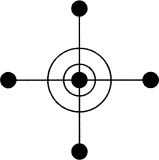
Defenders protect the normal people, but not with the heedless abandon of some Martyrs. Defenders tend to be thinkers and strategists who know they can't take the fight to the enemy if their flank is exposed. Destroying the enemy is pointless if they die in the process, or I they can achieve a "victory" only by ruining what they hope to save.
Defenders tend to be optimistic. If a situation looks bad, they make an orderly retreat and live to fight another night. If the enemy brings the fight to their doorstep, Defenders struggle to the last drop of blood.
- Ward: Whether through sheer determination, monsters' fear, or sme invisible barrier, a Defender can keep supernatural creatures at bay. They can't approach her unless she allows it or their will is stronger than hers. A character using Ward sees and feels a crackling energy radiate from her body. creatures making contact with her aura spark a static charge; no damage is done, but monsters' limits of approach are demarcated.
- Rejuvenate: Defenders are remarkably hard to put down for good. Minor injuries (slight abrasions, bruises) close up and heal visibly. Strained joints stop swelling on their own and pop back into place spontaneously. Even broken limbs straighten out, lock into place and heal within das or sometimes hours. Perhaps even more miraculous, Defenders can impart some of their healing upon others.
- Brand: Your character's hand crackles with energy and, when laid upon a supernatural creature, can burn a mark on it. This sign isn't just skin deep; the brand smolders through any clothing that covers it. Sturdy coverings like armor aren't burned through, but do become tremendously hot, possibly enough to damage the wearer. The brand is about the size of a palm and can be in the shape of any symbol in the hunter image language. "Monster" or "Corruption" are commonly used. The sign is visible to everyone -- even mortals who aren't hunters. Furthermore, the brand can be seen even I the target becomes invisible to normal sight or changes appearance (the brand can still be seen by hunters for whom second sight isn't currently active). Defenders use this power to mark the enemy for their fellows to see, and to alienate victims from their own kind (brand doesn't affect objects, normal people, or other hunters). Although a visible brand doesn't expose a shapechanger or bloodsucker as such, it certainly sets him apart as the one-time opponent of another hunter, and therefore as a possible threat to protect against. To the uninitiated, such as normal people, a brand seems like a disturbing -- even ominous -- tattoo.
- Championship: Sometimes, the best way to protect someone or something is to make the monster come to you. A Defender uses this Edge to force his foes to confront him instead of others. Calling the enemy out is always a calculated risk. The Defender doesn't want to sacrifice himself -- he's not a Martyr, after all -- he simply draws attention to himself in hopes of preserving another person or thing, and with the intent of winning the battle. Indeed, Defenders this far advance along their path may acquire this Edge because they finally have the power to confront the enemy one-on-one, as opposed to when they were newly imbued and kept creates at bay with Ward. When this Edge is activated, a monster has difficulty focusing its attention on anything but your character, because the Defender appears to be the weakest "prey" among the flock, the most compelling challenge, the most fun to toy with, or the most imposing danger. Your hunter's "appeal" is determined by the motives or intentions of the offending creature. This Edge is often triggered by feigning weakness or stupidity, or by a simple taunt: "You don't look so tough!" or "Pick on someone your own size!" By diverting creatures, this Edge presents tactical possibilities that Defenders are quick to exploit. It can allow others to slip past monsters unnoticed or lure monsters into well-prepared ambushes.
- Burn: When this Edge is activated, your character is infused with a searing energy. Visible to all hunters and supernatural creatures alike, this energy looks like a seething, red-yellow glow, almost as if your character has lava running through his veins. Touching (or being touched by) a hunter in this state is painful and damaging.
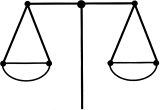
A Judge places all his faith in higher values and ideals. However, unlike other adherents of Zeal, the Judge knows that answers aren't necessarily obvious. You can't always cut to the heart of the problem with a single blow. And sometimes protecting something in battle only makes you responsible for it throughout the war. Many Judges, in fact, question the instinctive reactions of their more direct or determined colleagues. Judges don't do what they want, they do what they have to, and they do what's right. If that means sparing even monsters, despite innocent lives lost -- perhaps to discover the creatures' master -- then that's the price of the greater good.
- Discern: Your character exhibits a hyper-alertness to supernatural creatures, a surreal perspective that allows her to perceive things about the unknown that most couldn't. She might notice that a hand laid on a desk leaves no heat impression, that a person's eyes don't dilate with changing light, or that a being simply doesn't breathe. Such information is usually enough to determine the approximate kind of creature a Judge faces. Also, your character can't be blinded, even if her eyes are closed or she's in utter darkness. This power also permits vision when your character's eyes have been dazzled (or town out, for that matter). The hunter can see what's in front of her face as if she were in a clear, well-lit room, regardless of the real conditions. Even formerly bad eyesight is corrected miraculously.
- Burden: Your character can imprison a supernatural creature briefly, fixing it to the ground where it stands (in some cases, "freezing it in the space it occupies" might be more accurate). Some Judges theorize that the overpowering scrutiny that occurs with the Edge is more that the guilty consciences of monsters can bear, and they're immobilized. Your character must look at the thing and hold it in her gaze. Eye-to-eye contact isn't required. Blinking is allowed, but looking away long enough to attack anything else or pay attention to anything else sets the creature free. The entity can still act -- speak, fight, use any powers it possesses -- but it can't move more than a foot from where it is. More than one creature can be burdened at one time, as long as they can all be seen simultaneously. Some creatures have capabilities that allow them to move into other realms or at superhuman speeds. These powers can sometimes be used to break free of Burden.
- Balance: With this power, your character can deny an entity access to its source of strength (usually an energy stolen from humankind). To use this Edge, your character must look at the creature and verbally curse it in some fashion. This can be anything from, "By my oath, no blood shall nourish you today!" to a simple, "Starve, bastard!"
- Pierce: A character with this Edge is a human lie detector. When she hears a falsehood, she typically experiences a distinct (and very unpleasant sensation). The feeling is different for each hunter. Some perceive it as a foul smell, others as a queasy feeling, still others as a brief flash of light. Whatever form the warning takes, it's unique and can't be mistaken for anything else. Furthermore, your character develops a specialized form of postcognition -- the ability to share a subject's memories of the past. Specifically, if your character touches a person who has had an encounter with a supernatural being, she has a vision of that person's most recent encounter. If you character touches a supernatural creature, she receives a vision of the creature's past -- either looking back on its encounters with a certain object, person, or place, or casting back to a specific, short period of time. These visions are all silent.
- Expose: When your character uses this Edge, the normal people around him become aware of any supernatural beings in their presence. The creatures are immediately perceptible for what they truly are, despite how they seek to hide themselves with unnatural powers. The effect doesn't apply to revealing hunters in anything unusual; most look perfectly normal.

- Cleave: Any melee weapon your character wields suddenly becomes much more potent. The weapon can already be dangerous -- a knife, a baseball bat -- or be fairly harmless -- a stick, a broken bottle. Even your character's own fist or body becomes deadly. There are also stories of hunters brandishing red-hot, glowing blades, and a rumor of a one-armed hunter growing a phantom limb with which to strike at the enemy. regardless of the form a weapon takes, it can damage just about anything it touches -- werewolves, ghosts, stout doors, intrusive people. A weapon created spontaneously with this power persists as long as your character wills it to or while she remains conscious. Existing weapons that are empowered can endure only so much punishment before being ruined. An empowered object doesn't necessarily look any different, but it feels warm to the touch to the wielding hunter, and seems to vibrate with energy of its own. In cases of manifested blades and limbs, only hunters and supernatural beings can see the weapons.
- Trail: Your character touches a supernatural target and causes that person or thing to leave a smoky streamer behind it. This trail is usually visible only to the hunter who places it, although characters using Discern, Witness, or Illuminate may perceive others' trails. The streamer roils in the direction in which the subject traveled. A trail can neither be touched or felt. Likewise, it can't be dissipated by wind, by being waked through, or by anything else that would scatter a physical fog. A creature or person being followed can't see the trail unless it specifically possesses preternatural perceptions (Storyteller's discretion).
- Smolder: This Edge produces a cloud of thick black smoke. Some smolder clouds appear sourceless. Others must be exhaled by the creator. A cloud shields the hunter from all mortal perception and from most supernatural awareness. Sight, smell, all heat perception and most hearing is baffled. If your character fires a shotgun from concealment within a smolder cloud, the sound of the shot is about as loud as a finger snap.
- Surge: A character who uses Surge feels a tingling sensation course through his limbs. With but a thought, this sensation can be directed to different body parts. It can be poured into muscles and used for extraordinary bursts of strength, channeled through the nerves for remarkable speed, or shunted into the bones and skin to absorb damage.
- Smite: The faithful like to call this effect "the Wrath of God." Your character gestures, and something that's not quite lightning and not quite fire erupts from her body and (usually) incinerates whatever she's pissed at. Smite isn't subtle: It produces a blazing light, a deafening crash, and an acrid ammonia stench. Electronic equipment within 10 feet is usually scrambled, glass breaks, metal surfaces are discolored, and people nearby often suffer nosebleeds.
Tip jar: the author of this post has received 0.00 INK in return for their work.
-

Crooked Thoughts - Member for 15 years
-








Post a reply
-
Make a Donation
RPG relies exclusively on user donations to support the platform.
Donors earn the "Contributor" achievement and are permanently recognized in the credits. Consider donating today!
Who is online
Registered users: Google [Bot], Majestic-12 [Bot], mdzakirhossain1, shenxiangmach, sportlemonvip, taixiutdtcnet, vungocquyenblog
